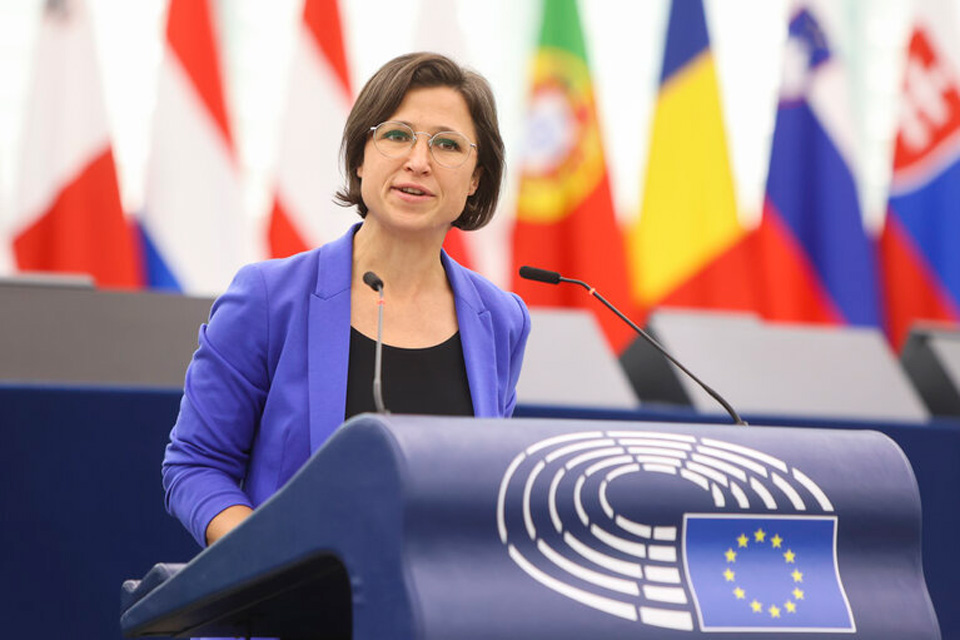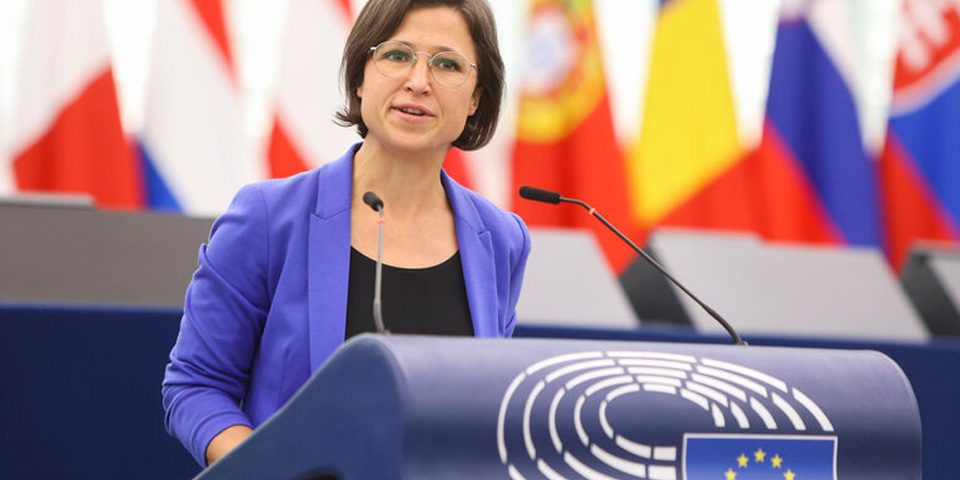Amendments to the European Parliament’s annual COP resolution would position bloc as military decarbonisation leader if implemented.

The European Parliament has called for the closure of the military emissions gap ahead of COP28. Each year, parliamentarians vote on a COP resolution outlining the European Union’s calls for action ahead of the annual climate conference. This year, parliamentarians have voted to act on military emissions – action that can’t come soon enough.
Shining a spotlight on defence
The European Parliament prepares an annual resolution ahead of each UN climate conference, with new amendments proposed and debated, and which build on the text of previous years. This year’s text P9_TA(2023)0407 UN Climate Change Conference 2023 in Dubai, United Arab Emirates (COP28), was adopted by the plenary on 21st November, and marks the end of several months’ work by MEPs on new amendments in the parliament’s environment subcommittee.
The first amendment passed at plenary was proposed by MEPs from the Left in the European Parliament and highlights the role that the defence sector has to play in reducing global emissions:
‘Stresses that all sectors must contribute to the reduction of emissions, including the defence sector, while maintaining operational effectiveness, and that the development of decarbonisation technologies and strategies in the defence sector should be accelerated;’
The second half of this amendment, proposed by Greens-European Free Alliance MEP Pär Holmgren, addresses the fact that military emissions reporting to the UNFCCC is voluntary, and calls on the EU to be active in changing this:
‘…notes that the inclusion of disaggregated military emissions in UNFCCC submissions is voluntary and it is not currently possible to identify reported military GHG emissions from the submitted UNFCCC data; calls on the High Representative of the Union for Foreign Affairs and Security Policy, the Commission and the Council to formulate a proposal for the transparent accounting of military emissions to the UNFCCC which acknowledges the adoption of the Strategic Compass for Security and Defence, and in order to fully implement the Climate Change and Defence Roadmap;’
The European Parliament’s acknowledgement of the Military Emissions Gap is long-overdue, and we hope that this important commitment to transparent accounting will move beyond words and into action.
The road to Net Zero
A second amendment tabled by Pär Holmgren MEP was also passed, it called:
‘…on the Member States to ensure that military GHG emissions are included in domestic net-zero targets in order to accelerate the development of decarbonisation technologies and strategies;’
Through the European Green Deal, the EU is aiming for climate neutrality by 2050. Unlike the UNFCCC process, no sectors have been excluded from action, with the role that militaries need to play outlined in the Climate Change and Defence Roadmap. This resolution is a further reminder to Member States that militaries must be part of societal decarbonisation efforts, and not excluded from environmental norms, as has so often been the case in the past.
Unity at last?
Until this year, this issue remained needlessly divisive on a political level, despite the parliament’s earlier support for the Climate Change and Defence Roadmap. When similar language on mandatory military emissions reporting to the UNFCCC was tabled last year, it was rejected by the European People’s Party, Renew Europe and to a lesser extent, the Socialist and Democrats, something we covered in our blog at the time.
While it’s positive to see this resolved, this year’s language doesn’t call on Member States to publish their national data, suggesting that this may have been the red line for conservative and liberal MEPs. This in spite of the parliament passing its earlier resolution supporting the Climate Change and Defence Roadmap, which stated that: “…without reporting and transparency, there will be no pressure to cut emissions and no means of determining the impact of any pledges.” Positively however, the only objections this year came from the far-right Identity and Democracy Group, which attempted, unsuccessfully, to block the amendments during the plenary vote.
Time to act
As a signatory to the Paris Agreement, the European Union has a responsibility to limit warming to 1.5oC and its European Green Deal is driving the policies aiming to do this. While this week’s vote is very welcome, we now look to the EU’s High Representative for Foreign Affairs and Security Policy, the Commission and the Council to progress this commitment, as well as the recommendations already outlined in the Climate Change and Defence Roadmap.
Additionally, the COP28 resolution constitutes the mandate for the European Parliament’s delegation attending the conference. Although the delegation undoubtedly has many issues on its agenda, there is an expectation that if the EU and its Member States match their words with deeds they could provide much needed global leadership on military emissions. With Europe responsible for the most dramatic global increase in military spending of 2022, this is increasingly urgent.
Ellie Kinney is CEOBS Campaigner





